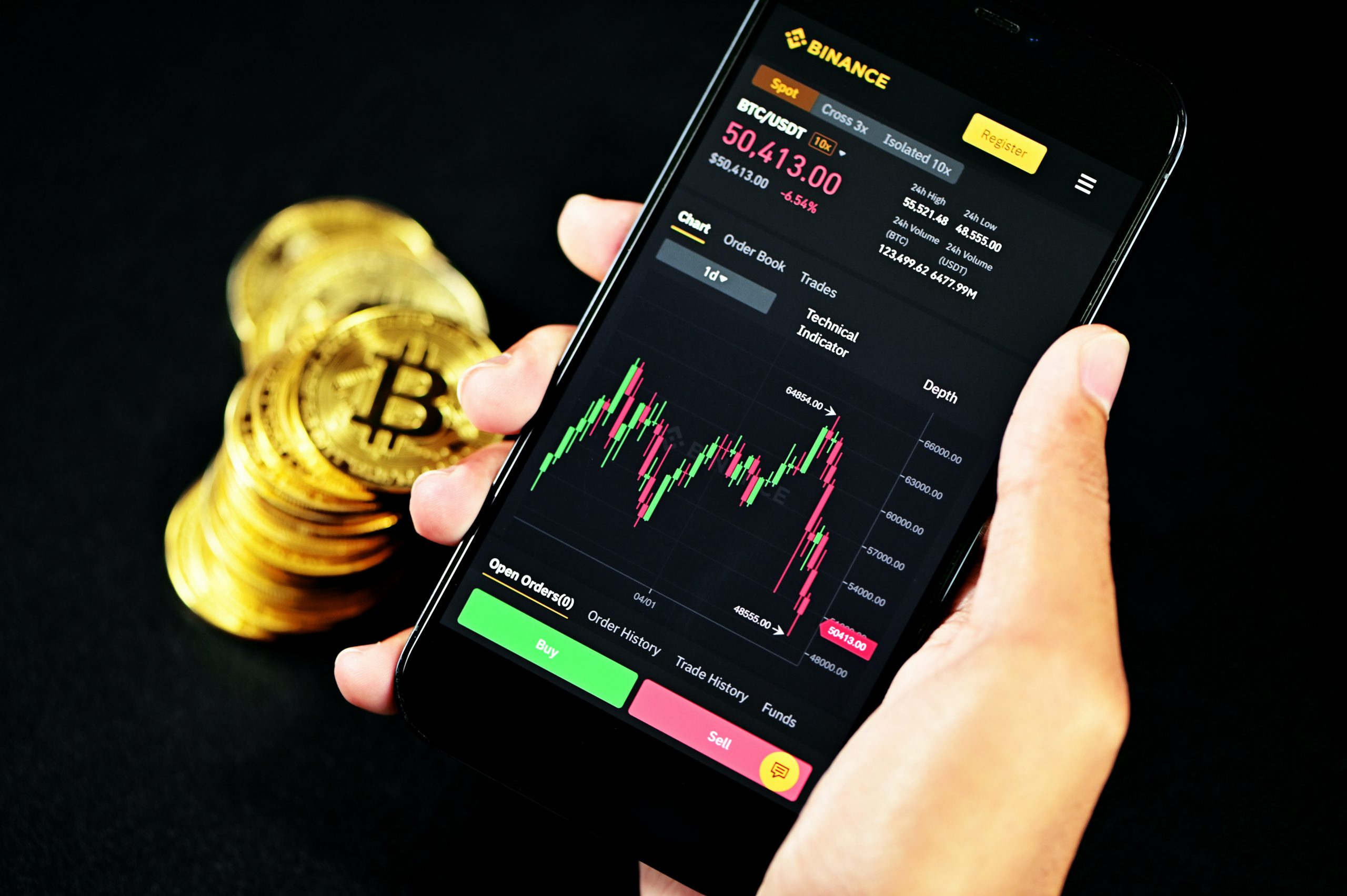Why Everyone Should Have 1% of Their Assets in Crypto
Why should you have 1% of your assets in crypto? Panelists at the Dartmouth Entrepreneurs Forum had a different question: why not?

The COVID-19 pandemic has rocked the global economy, with uncertainty and inflation sticking around as stubbornly as the coronavirus. That’s led some people to consider putting a portion of their assets in cryptocurrency.
Forty-six percent of attendees at a Dartmouth Entrepreneurs Forum discussion of cryptocurrency said that they currently own crypto. Seventy-five percent of attendees said they planned to buy crypto in the next year.
Whether you’re crypto-curious and an established crypto investor, you’ll want to hear the discussion from the DEF presentation, “Why Everyone Should Have 1% of Their Assets in Crypto.” The discussion was led by Mike Lempres D’81, a legal strategist for blockchain companies. He spoke with Jordan Cooper D’04, partner at Pace Capital and a crypto investor; John Burnett Tuck’09, founder of Omniex Holdings, Inc., a platform for crypto investors and traders; and Min Kim D’14, Chief Marketing Officer at Polygon.
The benefits of investing in crypto
Despite being an early expert in blockchain for State Street, Burnett says he was slow to invest in crypto on a personal level. Now, however, when people ask him why they should invest in crypto he has a simple response: why not?
“It’s an asymmetrically positive return profile,” he said. “I think it will be a beneficial part of your portfolio.”
Burnett cautioned that people should only invest what they’re willing to lose — often a single digit percentage of their net worth. With that in mind, he said, crypto provides yet another way to diversify your investment portfolio.
There are a few advantages in his mind. Movements in crypto value are often unrelated to other asset classes, which can provide balance. In addition, depending on which coin you invest in, there’s a more stable valuation than fiat currencies.
“Unlike U.S. dollars that can be created out of thin air, you can’t do that there. That’s part of the value proposition,” he said. “I think of bitcoin as digital gold.”
Cooper turned to crypto because he was interested in a financial option that wasn’t tied to governments or banks. However, a big part of the value proposition for him now is the community aspect of crypto.
“I think there’s real world value in some of these systems that is not necessarily investment-oriented,” he said.
Currently, many people have a chance to invest in a platform that could fundamentally change the way society functions, just like mobile and the internet did. Compared to those innovations, crypto is more widely accessible.
“Historically, to participate in these technological shifts, you had to have access to the people who were promoting them,” Cooper said. “Now, that access has been democratized. Anyone can access these nascent technologies at potentially profound levels.”
Crypto and the unbanked
All the panelists agreed that one of the greatest potential impacts for crypto is among the unbanked, both in the United States and abroad.
“It’s a huge narrative that is very relevant right now,” said Kim. In South America, which has experienced inflation and unstable currencies, some stores are starting to accept crypto, she pointed out.
Unlike banks, which charge transaction and account keeping fees, crypto has extremely low transaction costs.
“Crypto is incredibly efficient,” said Lempres.
There’s essentially no cost for on-boarding a new customer with crypto, and the platforms don’t have barriers like requiring government-issued identification.
“There are a lot of inhibitors to accessing the banking system that don’t exist in crypto,” Cooper said. “I don’t need any blessing from the government in any way to create a bitcoin wallet and have someone who I do work for put value there. I think that is profound.”
Even for people who are able to access banks, crypto provides a certain level of security by being independent of the government, Burnett said. He pointed to the run on banks that happened when the Greek economy faltered.
“If people had some of that in crypto, which is unable to be manipulated by the government, they could have had a lot more freedom and maintained some of their wealth,” he said.
Crypto and government regulation
That begs the question: with crypto becoming more widespread, will we see more government regulations aimed at controlling digital currencies?
The answer is likely yes, the panelists said. However, crypto investors don’t have to worry too much about that. Lempres said it boils down to the mom and dad test: if you’re doing things with digital currency that you wouldn’t mind telling your parents about, you’re unlikely to run afoul of regulators.
“Any project anywhere that is providing a good service and being transparent probably runs a very little risk of enforcement actions right now,” he said.
There are two areas where Lempres anticipates seeing regulatory action. The first is with NFTs, or non-fungible tokens. These are units of data stored in a blockchain that represents a specific and original digital file, like a photo or album. NFTs are emerging right now, with large valuations that are catching the attention of the public and regulators alike.
“There’s going to be a lot of people hurt. There will be some abuses,” Lempres said. “I think there will be some enforcement actions brought there.”
He also expects to see governments around the world looking closely at stablecoins. These coins have a valuation that is pegged to another asset, like the U.S. dollar or gold. Because of that, they fluctuate much less than other cryptocurrencies.
“If they succeed, they represent a risk to the ability of governments to manipulate monetary supply through reserve currency,” said Lempres. “The Department of the Treasury and the Federal Reserve have both indicated that they’re casting a skeptical eye on stablecoins. The stablecoins will come out the other side, but there’s going to be some issues.”
Getting started with crypto
Investing in crypto can be intimidating because there’s such a steep learning curve in the space. Still, Lemres said the time to start is now. He recommended that new investors look to CoinDesk for information, use platforms like Coinbase or Gemini for trading.
“You don’t need to know how it all works, you just need to know you have it,” he said. “No amount is too small. It’s not too late.”

